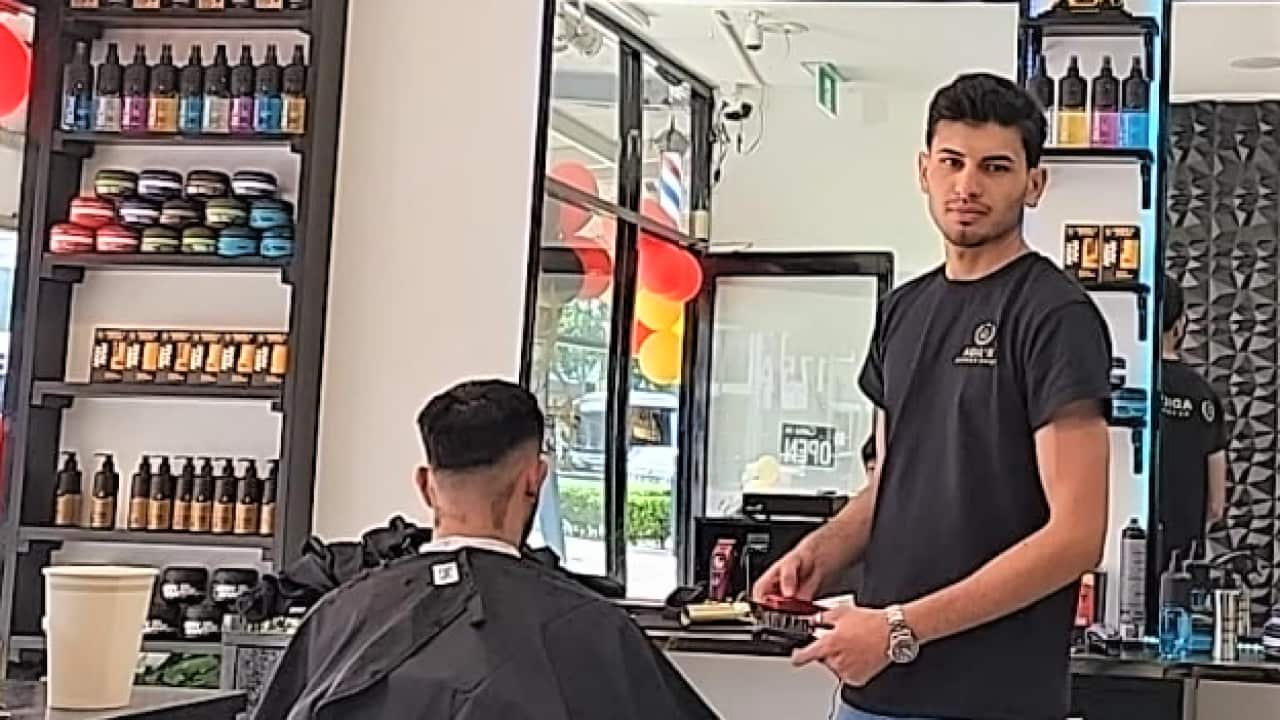Key Points
- Adil Sulaiman opened his own barbershop in Wagga Wagga.
- Cutting hair became his passion while living in refugee camps in Turkey.
- The Yazidi community has thrived since arriving in Wagga Wagga from 2016, according to an advocate.
Adil Sulaiman's refugee journey began in 2014 when IS forces attacked his hometown of Sinjar in northern Iraq, an operation that targeted the local Yazidi population.
The attack and abduction of thousands of Yazidi men, women and children, many of whom remain missing to this day.
He was only a child when he fled the warzone.
Three tumultuous years later, Mr Sulaiman, his parents and four siblings, relocated to neighbouring Turkey, where they remained as refugees in various camps.
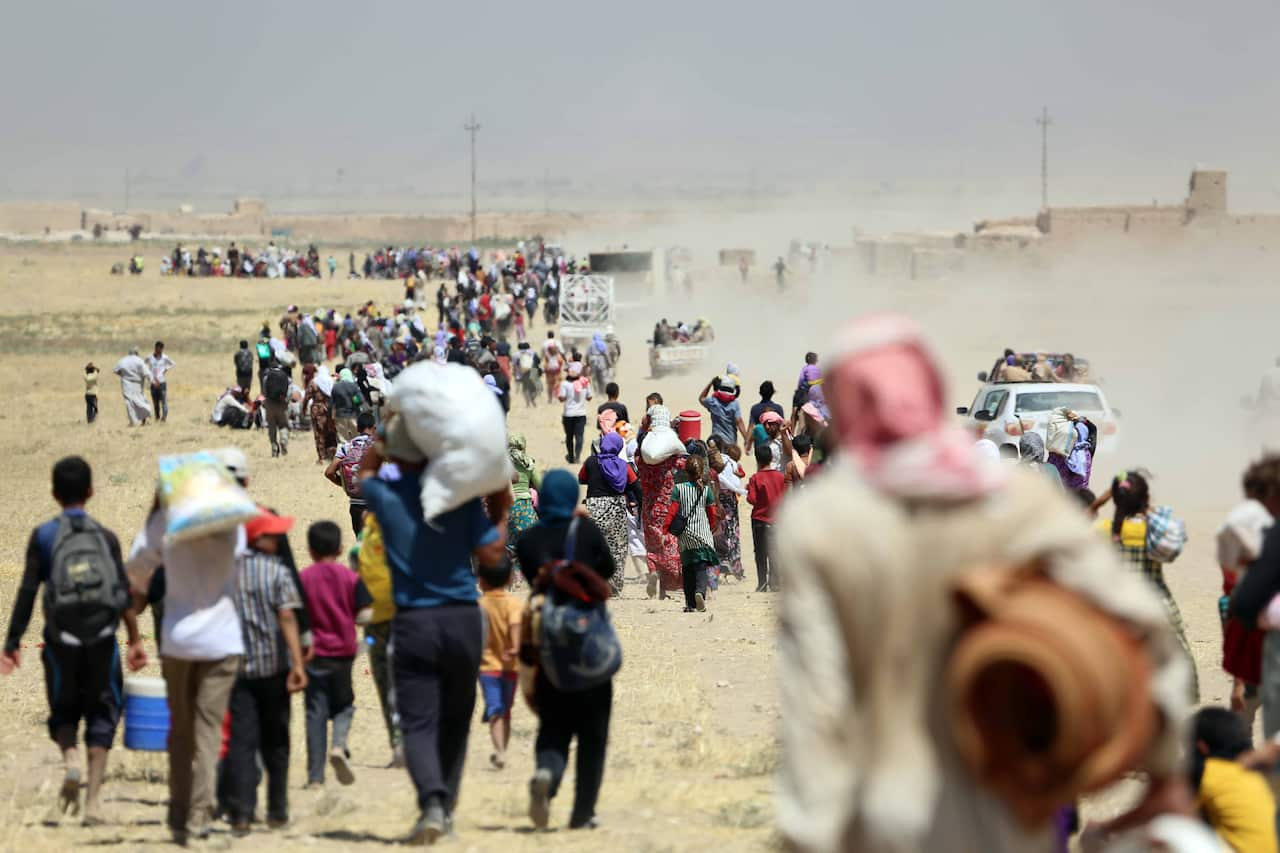
Thousands of Yazidis trapped in the Sinjar mountains as they tried to escape IS forces, were rescued by Kurdish Peshmerga forces and the Peoples Protection Unit (YPG) in Mosul, Iraq on August 9, 2014. Source: Anadolu / Anadolu Agency/Getty Images
Who are the Yazidis?
The Yazidis are an ancient religious minority who traditionally live in regions of Iraq's north, particularly around Dohuk and Nineveh provinces, with large communities in Sinjar where a number of their holy sites are located.
Yazidis believe .
While official figures are hard to capture, there are an estimated 400,000 - 600,000 Yazidi people still in Iraq, while communities exist in Syria, Georgia, Armenia and Russia.
Ethnically they are originally related to the Kurds and speak the Kurdish dialect of Kurmanji.
These communities have often been the target of persecution and attacks over the centuries, often as a result of their differing religious beliefs.
How a passion turned into a profession
Mr Sulaiman's family "found stability" when their humanitarian visas to resettle in Australia were granted in 2020.
"Living in an unstable situation was a challenge for me and my family until we found stability [in the form of] permanent residency when we moved to Australia," he told SBS Kurdish.
The family arrived in Wagga Wagga, a regional centre in NSW where members of the Yazidi minority were resettled to relieve pressure on refugee services in Australia's main cities.
Mr Sulaiman was 18 when he enrolled in Year 10 at Mount Austin High School, before graduating and beginning training to become a professional barber.
It was a career path that he chose after first picking up the shears while living in a Turkish refugee camp.
“There weren’t any barbers close by in the refugee camp, so I started cutting both my brothers' hair and that of friends in the camp," he said.
"That's how my passion for becoming a barber began."
In Australia, he began attending classes.
"Once a week, I used to attend the barbering classes at school, but the skill started in the refugee camp. I did not even think that one day I would eventually own my barber business."
His first professional opportunity came at Big Barber Shop in Wagga Wagga's sprawling marketplace.
As an apprentice, he built a reputation as a "go-to guy" for fashionable cuts, he said.
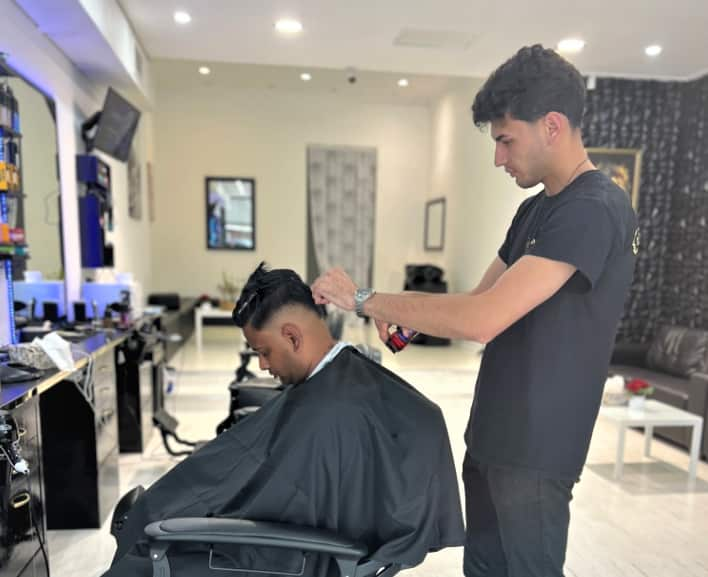
Adil Sulaiman opened his own barbershop in early December. Credit: Supplied
He said he and his family have "found joy and happiness" in the town.
“Wagga Wagga is a delightful country town, striking the perfect balance between tranquillity and activity.
"It’s ideal for work and living, with the bonus of being close to family."
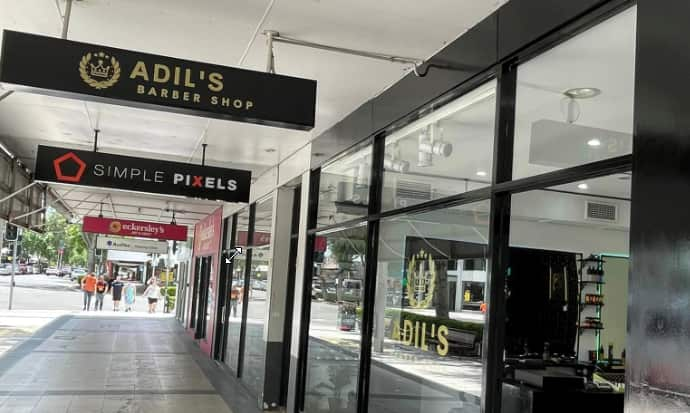
Adil's Barber Shop, Wagga Wagga Credit: Supplied
'Yazidi community have settled in well'
Thousands of Yazidis have been resettled in the town in the Riverina region of NSW, as a result of Australia’s Humanitarian Program that specifically focussed on resettling Yazidi women, children and families from Iraq and Syria.
The, with the majority arriving in 2017 and 2018.
The community has thrived ever since, especially in the areas of business, according to the CEO of the Multicultural Council of Wagga Wagga, Belinda Crain.
"It has been amazing to see how well the Yazidi community have settled in Wagga Wagga," she said.
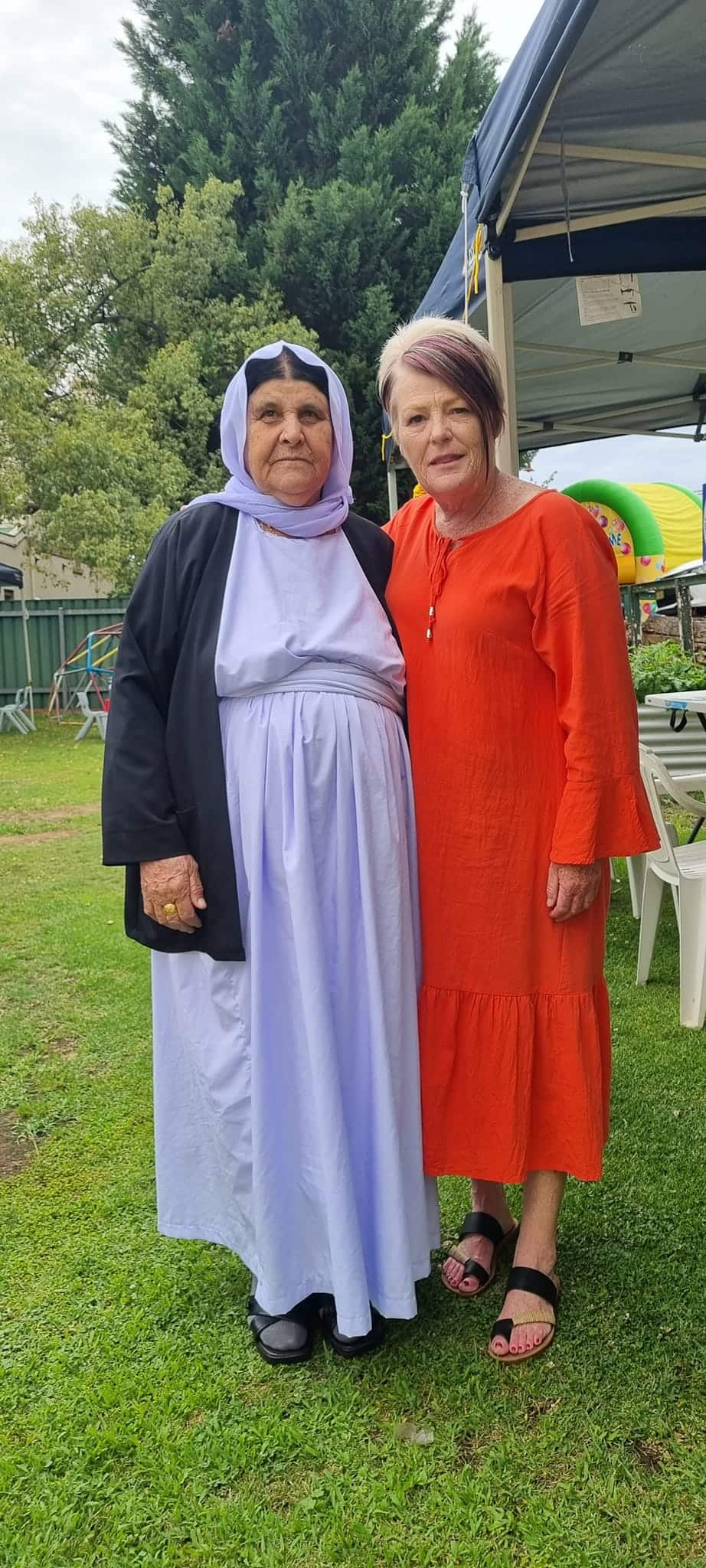
CEO of the Multicultural Council of Wagga Wagga, Belinda Crain (R), with Bizar Hasan (L), a member of Wagga Wagga's Yazidi community, at an event in November 2023. Credit: Belinda Crain
"Wagga is truly lucky to have been part of such great settlement outcomes not only for the Yazidis but for all other refugee and humanitarian arrivals who have made Wagga their home."
